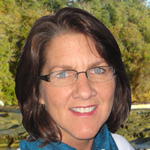“The gunfire around us makes it hard to hear.But the human voice is different from other sounds. It can be heard over noises that bury everything else, even when it’s not shouting, even when it’s just a whisper. Even the lowest whisper can be heard over armies when it’s telling the truth.”
This quote, from the excellent script of “The Interpreter”, is about the desire for peace in war-torn lands. This picture also represents to me the battle that may be ongoing in our minds. Sometimes the gunfire is not across the ocean in a different land but coming from within. It is very common for my clients to wrestle with devaluing messages (often from parents) that are being replayed years later.
Experientially many of us agree that the old voices are hard to shake. It turns out there are physical reasons for this: Researchers in the last few decades have discovered that the brain has neurological pathways that develop much like well-worn paths; it takes a lot of discipline to train ourselves to think differently because the old messages are more familiar.
Often a client can receive the truth because she craves it like water. It rings true and even for a few moments something huge can shift. The trick is to have that shift get some traction, to carve out a new path. This is a huge challenge. In “My Stroke of Insight” Jill Bolte Taylor writes of her experience of having a stroke in December 1996. She is a prominent neuroscientist and actually knew what was happening to her. She picked up the phone and called her colleague, not even able to form words to communicate what was going on. But he knew. And in this remarkable autobiography she says she couldn’t understand his words but she ‘interpreted the soft tones in his voice to mean that he would get me help’.
I read Taylor’s autobiography at the same time I was seeing a client who had experienced a lot of harsh criticism from her parents. As a married woman she would hear words of love and encouragement from her husband (thankfully) but they were not sinking in. And it occurred to me that she and Jill Taylor had opposite struggles: Jill couldn’t make sense of the words, but she could hear and understand the tone, the warmth from her friend. My client could understand the words but the tone was not computing; kindness was unfamiliar. This is sadly common.
The hopeful thing is that the messages are not carved in stone. It can feel like an uphill climb but the battle can be fought successfully if tackled from different angles. Negative messages can easily lead to depression and because there is a biochemical component to depression it makes sense that our bodies may need the help of drugs.
There are also many therapeutic approaches that give us footing and reaffirm the message that there IS a sun behind all those clouds. There IS help. My client’s work has been rewarded with a brighter outlook and she is a reminder to me of why I love being involved in the lives of women in this way. Whether counselor or client, though, we all need messengers of comfort, who will walk with us and faithfully keep reinforcing our value.
 Cathy Sakiyama, M.Ed.
Cathy Sakiyama, M.Ed.
Website
See all articles by Cathy Sakiyama



